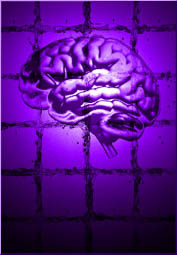A thesis by Twin Srikaew,
M.S.
As
we approach the new millennium, the advances in information and communication
technology overloads our senses with massive amount of information which
must be categorized and presented efficiently for better understanding
of the topic or even to generate a response. Efficiency and performance
are directly related to mental capacity. Although, many efforts to measure
mental capacity adequately are still in progress, there has been numerous
previous attempts to evaluate and compare human mental capacity and performance.
This study addresses
this last and the most daunting frontiers of human mechanism.
This study also introduces a technique
to evaluate mental capacity of human subjects under different physiological
and environmental conditions. The mental capacity battery has been developed
to measure the mental capacity by comparing Response Time (RT), Accuracy
(AC) and Repeatability (RP) of a subject, testing under normal as well
as stressed conditions. One can, hence, evaluate the stress and the environment
that affects human mental capacity.
 Mental
Capacity Mental
Capacity
The maximum potential
to understand the general logic of real world tasks from direct perception.
Mental Capacity is a unique quality of an individual,
INDEPENDECE OF AGE.
More
detail
 Test
Specification Test
Specification
-
Compact and comprehensive:
20 questions : AVG duration = 7 minutes.
-
No Time Limited: No Time Stress.
- Test descriptions
are based on real world task defined by Miller.
-
Test difficulty : 70% correct score under normal condition.
- Presenting in
a computer game format
- Ably to measure
Response Time (RT) Accuracy
(AC) Repeatability (RP) efficiently
-
Language independence: Visual display, pictorial question, mathematics,
color, and coding are emphasized more than language.
- The answering
method is based on Noise-detection theory- true/false,
yes/no.
- Requires use
of little muscle force to push the button.
-
Easy to test.The results can be retrieved immediately after test
session.
- No special instrumentation
: Low Cost
 The
Group The
Group
Advisor : Kambiz
Farahmand, Ph.D., P.E.
Thanks:
Robert
A. McLauchlan, Ph.D., P.E
Gary Weckman, Ph.D.
Dawud Abuzama, Ph.D.
Ranjeet Agarwala,
B.S.,M.S. student
Danish Siddiqqui, B.S.,M.S. student
Sponsor:
The
Royal Thai Airforce
Academic Scholarship
Contact information
Twin Srikaew
Texas A&M University,
Kingsville
USA
E-mail: Twin@bangkok.com
|

Created: 13 July 99
Last modified: 30 Oct 99
By Upman
Copyright © 1999
Texas
A&M - Kingsville
|

